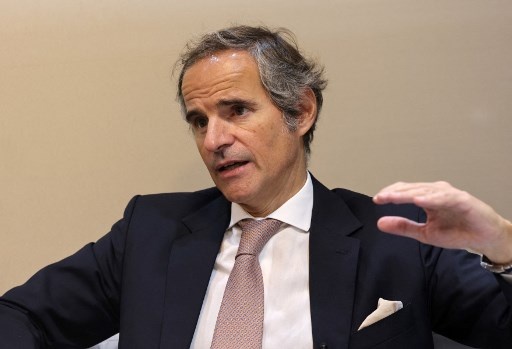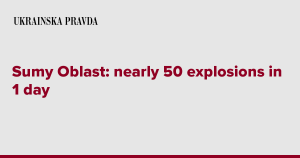
Talks on Ukraine Nuclear Plant Exclusion Zone “Very Complex”: IAEA – Kyiv Post
Efforts to persuade Russia and Ukraine to install a protection perimeter around the Zaporizhzhia nuclear plant are “very complicated,” the UN’s nuclear watchdog chief said Thursday, Nov. 10, while vowing not to “lose patience”.
The plant — Europe’s largest, located in Ukraine, but in territory Russia claims to have annexed — is near the scene of constant shelling and only has enough power to keep its six shut reactors from melting down.
The site is close to the line between Russian and Ukrainian forces and the two sides have in recent months repeatedly accused each other of shelling around the plant, leading to fears of a nuclear disaster.
The International Atomic Energy Agency (IAEA) began shuttle diplomacy several weeks ago on securing the site.
“It’s taking awfully long (and) I am the first to be impatient, but I cannot afford to lose patience,” IAEA chief Rafael Grossi told AFP on the sidelines of the COP27 climate conference in Egypt.
“It’s a very complicated negotiation… because (it is) between two countries at war, and where there are actually no negotiations between them,” added Grossi, who has been in touch with the presidents of both Russia and Ukraine.
“I am trying to bring these two countries to accept the concept of protecting this nuclear power plant,” he said.
He noted that he was not only shuttling between diplomats, but also military figures from the two sides.
“This makes it a very sensitive negotiation, when we come to the radiuses that we will be applying… when (we) come to the definition of what military equipment could be allowed or not allowed there,” he explained.
Grossi also touched on efforts to de-escalate concerns surrounding the potential use of nuclear weapons in the war in Ukraine.
The IAEA said early this month its inspectors had found no indications of “undeclared nuclear activities” at three locations in Ukraine during visits requested by Kyiv to address allegations by Russia that Ukraine was preparing to use dirty bombs.
A dirty bomb is a conventional bomb laced with radioactive, biological or chemical materials which are spread in an explosion.
“These allegations were made,” Grossi said on Thursday, “as part of a discourse… (based on the) idea that perhaps nuclear weapons could be used (by Russia) as a retaliation to the eventual use of these dirty bombs.
“So immediately, we jumped on this issue… we were able to cool this down, to cool off,” he said.


Average Rating